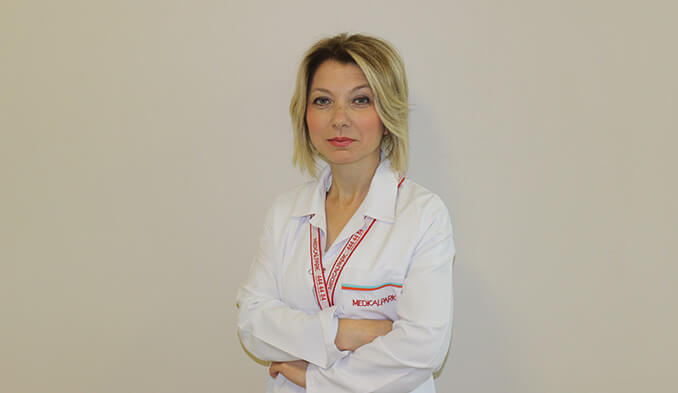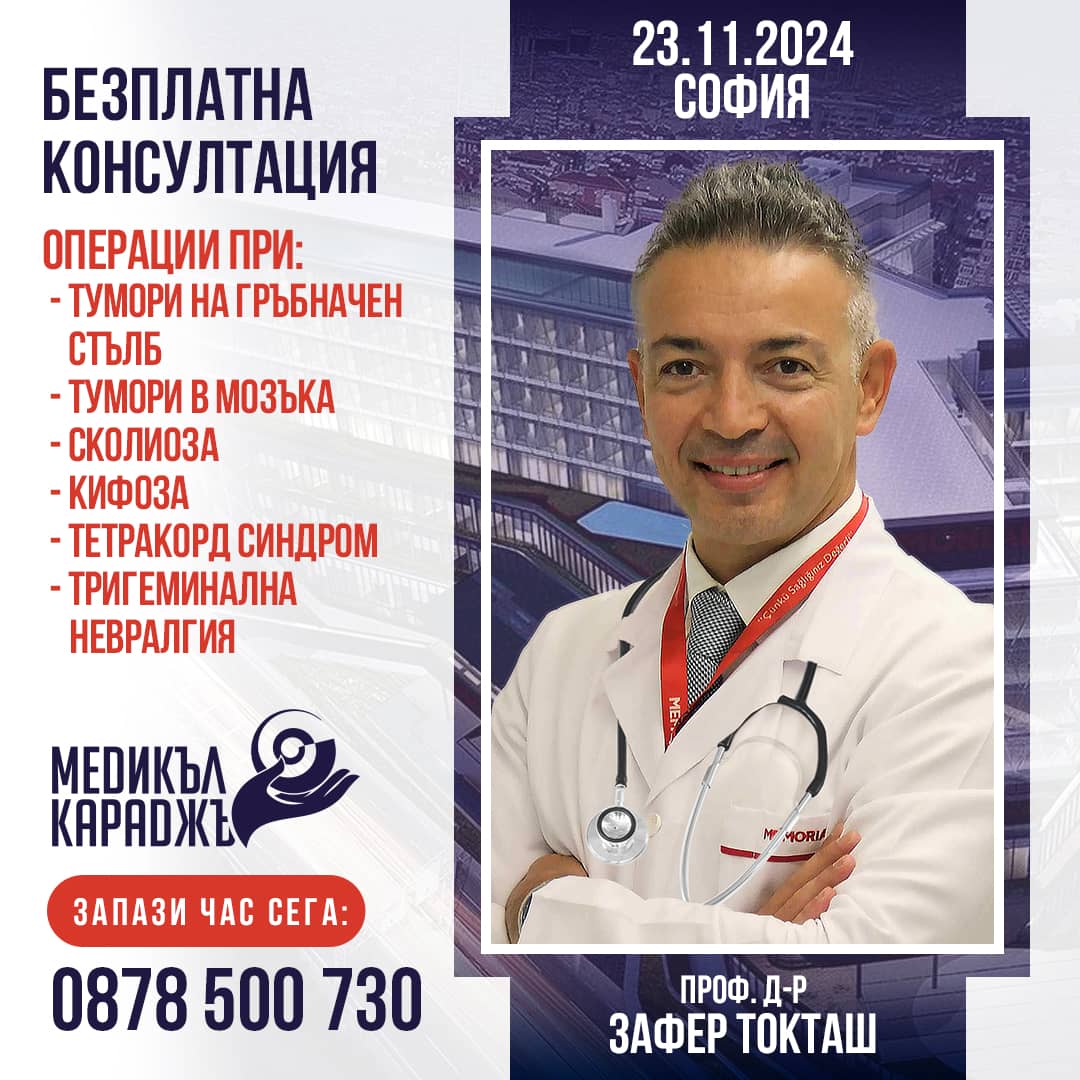Prof. Dr. Aynur Erşahin, one of the most successful specialists in the field of in vitro fertilization in Turkey, will be visiting Bulgaria on September 8, 2017. After more than 20 years of experience in some of the best clinics in Turkey, today Dr. Erşahin and her team at Medical Park Göztepe Hospital report impressive results in the field of in vitro fertilization:
- For "fresh" transfer: pregnancy achieved in 55% of cases on average; 60% success rate in the under 40 group; 17% in the over 40 group.
- In "frozen" transfer: 58% mean success rate, 66% in the under 40 group, 15% in the over 40 group.
Now couples with reproductive problems will be able to take the opportunity for a free consultation in Sofia with Assoc. Ainur Ershahin. She is coming to Bulgaria at the invitation of the Health Information Center "Medical Karaj", within the framework of their initiative to provide Bulgarian patients with access to the most advanced methods in medicine, partnering with some of the best medical institutions and specialists from around the world.
On average, 10-15% of couples encounter problem getting pregnant. Fortunately, today, thanks to modern technology, the problem is increasingly proving solvable, says Assoc. Ainur Ershahin and points out some of them:
Preimplantation Genetic Diagnosis (PGD): This is a method of genetic testing of embryos before implantation in the uterus, which allows to establish the presence of diseases or tissue incompatibility before transfer.
Detailed chromosome analysis (NGS): The method consists in studying the number and structure of embryonic chromosomes. For this purpose, on the 5th day of embryo development, an embryo biopsy is taken. The resulting cells are analysed at chromosomal level and examined for possible genetic disorders. After the procedure, the embryos are frozen. At the next stage, the embryos with the best results are selected for transfer into the uterus. This creates the prerequisites for a better success rate.
Morphological sperm selection (IMSI): This is a method of selecting higher quality sperm by optical magnification of the observed material. In the classical microinjection method, sperm selection is performed at 400-600-fold optical magnification. In IMSI method, the increase is up to 8000 times, which allows more precise selection and determines a high chance of success in couples with unsuccessful attempts so far.
Microchip: Microfluidic chip technology allows sperm with ideal DNA structure to be selected, increasing the chance of developing better embryos and increasing success rates.
Vitrification: The method of rapid cryopreservation of sperm-eggs-embryos, called vitrification, makes it possible to obtain embryos that are more viable and of much higher developmental quality. Cryopreservation of eggs to be used for future pregnancies is a lifesaving option, for example, for women with reduced ovarian reserve or who are about to undergo chemo- or radiotherapy.
Embryoscopy: In this method, an embryoscope is used, which provides constant control over the overall development of the embryos without requiring their removal from the incubator.
With the help of new techniques applied by experienced specialists, the success rate of couples with reproductive problems is increasing every year, says Assoc. Ainur Ershahin.
For further information and to book a free consultation, please call Medical Carrage on 0879 977 401 or 0879 977 402.
For the consultation it is necessary to provide the following examinations:
- AMN
- FS
- LH
- Prolactin
- Estradiol
- Progesterone (taken between day 2 and 4 of the cycle)
- FT3
- FT4
- TSH
- TAT and MAT
- Spermogram
- Blood group and factor of the two
- at the patient's request - Thrombophilia mutations
- if a hysterosalpingography has been performed - to provide the photos and the reading.






